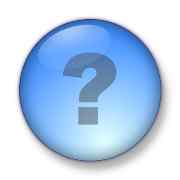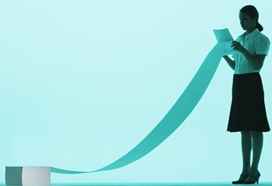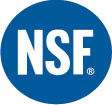What is the best water filter and why?
So how does one go about deciding which water filter to buy?
Here are the main things you need to find out before buying a filter:
1) What do you want to filter out of your water?
(Some cities for example have tap water that has more than 1,000 times the amount of arsenic considered optimal by the EPA! Read more about arsenic below (click here)! Oh, you drink bottled water? Okay, so you'd rather be drinking BPA or pthalenes? Read more about bottled water below (click here).
2) How do you find out which filter does what?
Figuring this out can seem a little intimidating but it's really not too hard, it just takes time to research it. I have done that research and will show you the facts and issues I ran across in my searches.
I am going to tell you exactly which filter I decided to buy and why, so if you want to know my answer, right now, feel free to skip ahead to the bottom of the page and find out. (This is not a Mystery novel!) 
But if you have a minute, please read the following explanation as to why and how I made my choice, so you will understand that what I am sharing with you here is based on extensive research and sound reasoning.
1) What do you want to filter out of your water? And how do you know what to filter out?

One way to deal with this question is to just take the "shotgun" approach and buy a filter that filters out more or less all the potentially cancer or disease causing chemicals, and leave it at that. If this is the approach you want to take (and there's nothing wrong with that!), then please skip down to #2, below. If, however, you want to find out more about which bad stuff is in your water, just read on.
There are two ways you can find out what specific contaminants you want to filter out:
A) If you live in a city you can contact your water company and ask them to send you a report on what is filtered out and what is left in your tap water. Call the number on your water bill and ask them for their water report, or you can often find it on the web.
B) If you live in the country and get your water from a well, it is highly advised that you pay someone to run a test so you know what you are dealing with. You can find a testing company by clicking here. Once you know which bad things are in your water, you can then choose the appropriate filter. Most of the time you can use the same carbon filter recommended below, but sometimes you may have contaminants that require you to use a Reverse Osmosis system system along with your carbon block filter. See my FAQ page for more on Reverse Osmosis.
Now, when you look at your water company report, it will inevitably say that your water is well within the law and so it is completely safe to drink. While it is no doubt within the legal guidelines, sometimes there are violations and you will want to make sure the system you buy filters out the substances that were not properly filtered out by your water company.
What your water company does not tell you is that often the law allows a level of contaminants that many scientists and doctors consider unhealthy even though the government says it is safe. "Safe" is a relative term. Potentially dangerous contaminants such as trihalomethanes, asbestos, lead, mercury, chlordane, toxaphene, and PCB's and many others are still in many cities' water - the water that is said to be safe from the tap. So many health experts agree that you should filter tap water using a carbon block filter in order to virtually eliminate these unhealthy chemicals. The government almost always says these levels are safe, until people start getting sick or dying, then they may admit there was a problem.
Don't be surprised if someone at the water company or at the EPA tells you that you don't really need to filter your water for health. Of course it is your choice, but since you are here I assume you agree with me, that it is best to be safe and filter your tap water.
Another issue is that, while the water at the water plant may have contaminants under the legal limit, the water may pick up more of that contaminant as it works its way through miles of pipes on its way to your drinking glass!
2) How do you find out which filter does what?
The NSF or National Sanitation Foundation is a non-profit pro-consumer group that does the job of examining water filtration systems and determining what they truly filter out and making sure the manufacturer is not misrepresenting its claims. This is important to us as consumers because otherwise any company can say their filter reduces this or that chemical to this or that degree. But only the NSF checks the company's products periodically and examines the company's plants to make sure they are up to standards deserving of NSF Certification.
NSF International is widely recognized as representing the highest standards of excellence. They are even recommended by the United States Environmental Protection Agency, which says: ""If you use a filter to remove lead, be sure you get one that is certified to remove lead by NSF International."
For much more information on the NSF, click here or choose "Why Is NSF Certification Important" from the MENU at the upper left of this page.
Now, the bottom line:
WHAT IS THE BEST WATER FILTER? And why?
Quite simply, the best filter - the filter that virtually eliminates the widest range of contaminants, as certified by the NSF, is made by Multi-Pure.
It is a carbon block filter, which is generally accepted by experts as being the best type of filter for home use, it is NSF Certified and also certified by the State of California and all of the other 4 states that have certification or registration policies re water filters. And it is certified by NSF to reduce the widest range of contaminants, of any filter on the market.
This is not some "wild claim", it is backed up by the facts as given by the National Sanitation Foundation.
Note that "Certified to NSF Standards" is not the same as "NSF Certified". "NSF Certified" is what it should say, and there should be a logo proudly displayed, like this:
For more information on Multi-Pure products visit: Multipureusa.com
Article by Yolanda White of Whatsthebestwaterfilter.com
Multi-Pure Authorized Distributor
Click here to see why I chose Multi-Pure and how I came to be a Multi-Pure distributor myself.